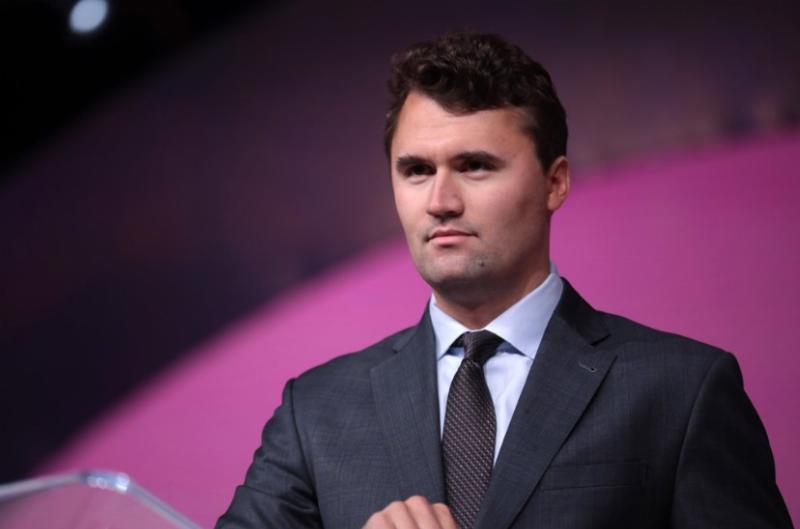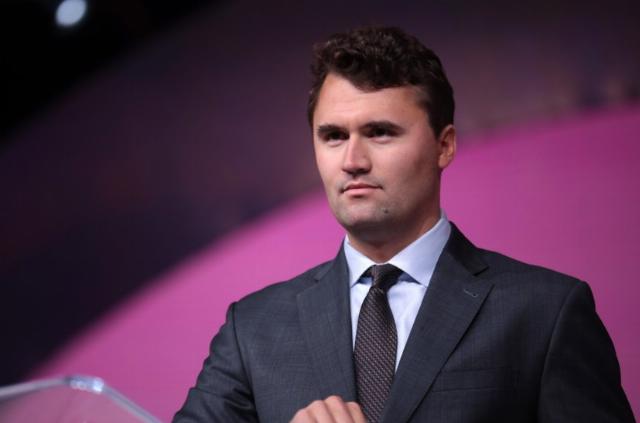


Charlie Kirk had a great determination to expose the evils of a world view that engulfed academia. His confrontation with the anti-God and anti-human viewpoint of the atheistic left with the Christian worldview stirred millions.
Death is often the fate of those who attack the false gods of their culture. To question the power and authority of the gods is to risk life and limb. To expose the evil fantasy that good can come from hurting oneself and others, that destruction of civilization’s foundations will produce a beautiful new society brings out the killers within the anti-human cult that has gripped America’s core institutions for decades.
Charlie Kirk paid the ultimate price.
Now the question is, “What happens after Charlie?”
The immediate temptation may be for the leaders of Turning Point USA to make the organization into a permanent memorial. Such a commitment would guarantee stasis and even ossification.
Acknowledgment of the great loss suffered by Charlie Kird’s beautiful and brave widow and those who are members of TPUSA must not become a type of liturgy endlessly and perpetually rehearsed. Instead, the longer-term commitment must be to reaffirming the Christian worldview he ably espoused, a view that must continue to be ably communicated by men and women who have — as Charlie did — an intimate knowledge of the deep intellectual and ideological pits academia and other institutions have dug for themselves. Those men and women must be able to present the Christian alternative clearly and articulately.
In short, Turning Point must be committed to the message, not to the memory of one person.
It must be committed to the confrontation of a systemic thought pattern that has over decades invaded not only academia, but the government, mainstream media, and other institutions, including churches. Although that system is in decline and a paradigmatic shift in the West’s world view is happening, it should be remembered that as the gods are about to fall, they become more insane in their demands as well as more vicious in their attempts to retain power. They strike out to kill everything and everyone who opposes them, including — as always — the Christian church.
Because Christian churches are exactly the institutions from which the Christian weltanschauung should be most vigorously proclaimed, it is tragically ironic to see that over the last several generations, churches and seminaries neglected the intellectual and spiritual hard work of articulating and promoting the Christian worldview. They have with few exceptions failed to confront meaningfully the intellectual and spiritual madness of those presently commanding Western structures. There has been a paralysis of will, a marked reluctance to take a stand against the political cults that have taken the reins. In fact, most churches have either absorbed the progressive tenets of faith or ignored them altogether.
The result has been confusion and wandering in the wilderness of the contemporary secular milieu. It is not only the West that has suffered the loss of a comprehensive and powerful Christian worldview. Africa, where Christianity is booming, also needs the shoring up of that view, particularly as some sixty-three million African Anglicans face the inevitable schism awaiting the Anglican church now led by the leftist archbishop of Canterbury, Sarah Mullally.
Joshua Selman, a well known Nigerian pastor, notes the intellectual and spiritual weaknesses of many African churches. The consequence of those weaknesses has been a marked loss of ambitious, bright young men and women who find themselves dissatisfied with the offerings of the churches they once attended. They find that the secular world offers more serious challenges and opportunities. They want to move forward in areas from which the church has retreated — fields of endeavors such as politics and business. But they do not have well articulated guidelines about Christian views on spheres of influence in which they wish to live and work.
Selman says the assignment of the church is to give answers. “While we commend ourselves for the little God is doing, we must be honest with ourselves: The world is asking questions we are either not hearing or being deafened by our arrogance over little and we are not staying to get real answers.” He concludes that the most valuable Christian should be saying, as Charlie Kirk said, “Use me to answer these questions.” As Isaiah said, “Here am I. Send me.” Help me to change the narrative and begin “creating pathways for a generation.”
Charlie Kirk and many others provide hope the Christian worldview can once again regain its voice within academia and politics.
Perhaps the leaders of Turning Point (and other institutions) might review the work of Christian spokesmen who have articulated the ways the Jewish and Christian worldview has informed Western culture. For such spokesmen as Protestant Abraham Kuyper, who was prime minister of the Netherlands (1901–1905), there was no sphere of influence that Christianity did not inform and guide, including politics. As he wrote in his Stone lectures, given at Princeton Theological Seminary in 1907, Christianity provides “a life system” that has applicability to an entire culture.
Catholic theologians have also devoted themselves to confronting the secularist life system while providing the contrasting Christian alternative. Pope Pius X’s encyclical Pascendi Dominici Gregis (September 8, 1907) confronted strongly modernists’ belief that spheres of influence such as governance and science are to be separated from any Christian influence. The Catholic Church, he proclaimed, is not the “enemy of science and the progress of humanity,” but acts as a guide to truth.
Pope John Paul II’s 1987 encyclical Sollicitudo Rei Socialis (December 30, 1987) explains that “structures of sin” inevitably result when Christians exit spheres of influence. He wrote:
If the present situation can be attributed to difficulties of various kinds, it is not out of place to speak of “structures of sin,” which ... are rooted in personal sin, and thus always linked to the concrete acts of individuals who introduce these structures, consolidate them and make them difficult to remove. And thus they grow stronger, spread, and become the source of other sins, and so influence people’s behavior.
He added that it is necessary to diagnose societal evils perpetrated by “structures of sin” and to follow the path outlined by God’s universal moral law:
This path is long and complex. ... Nevertheless, one must have the courage to set out on this path, and, where some steps have been taken or a part of the journey made, the courage to go on to the end.
In the context of these reflections, the decision to set out or to continue the journey involves, above all, a moral value which men and women of faith recognize as a demand of God’s will, the only true foundation of an absolutely binding ethic.
John Paul II’s words echo those of St. Paul, who wrote to the early Christian churches that they must press on against the structures of sin, dismantling them with truth: “We demolish arguments and every pretension that sets itself up against the knowledge of God.”
We should honor Charlie Kirk’s legacy. He ran the race with honor and integrity. Now there must be a passing of the baton in a race that will endure until the New Creation. Every generation must confront structures of evil and promote enduring truth contained in the Christian worldview.
Forgetting what is behind, press on to the goal. Continue the race.
May God speed.
Fay Voshell holds a M.Div. from Princeton Theological Seminary, where she was awarded the prize for excellence in systematic theology. Her thoughts have appeared in many online magazines. She regularly contributes to American Thinker. She may be reached at fvoshell@yahoo.com.

Image: Charlie Kirk. Credit: Gage Skidmore via Flickr, CC BY-SA 2.0.
